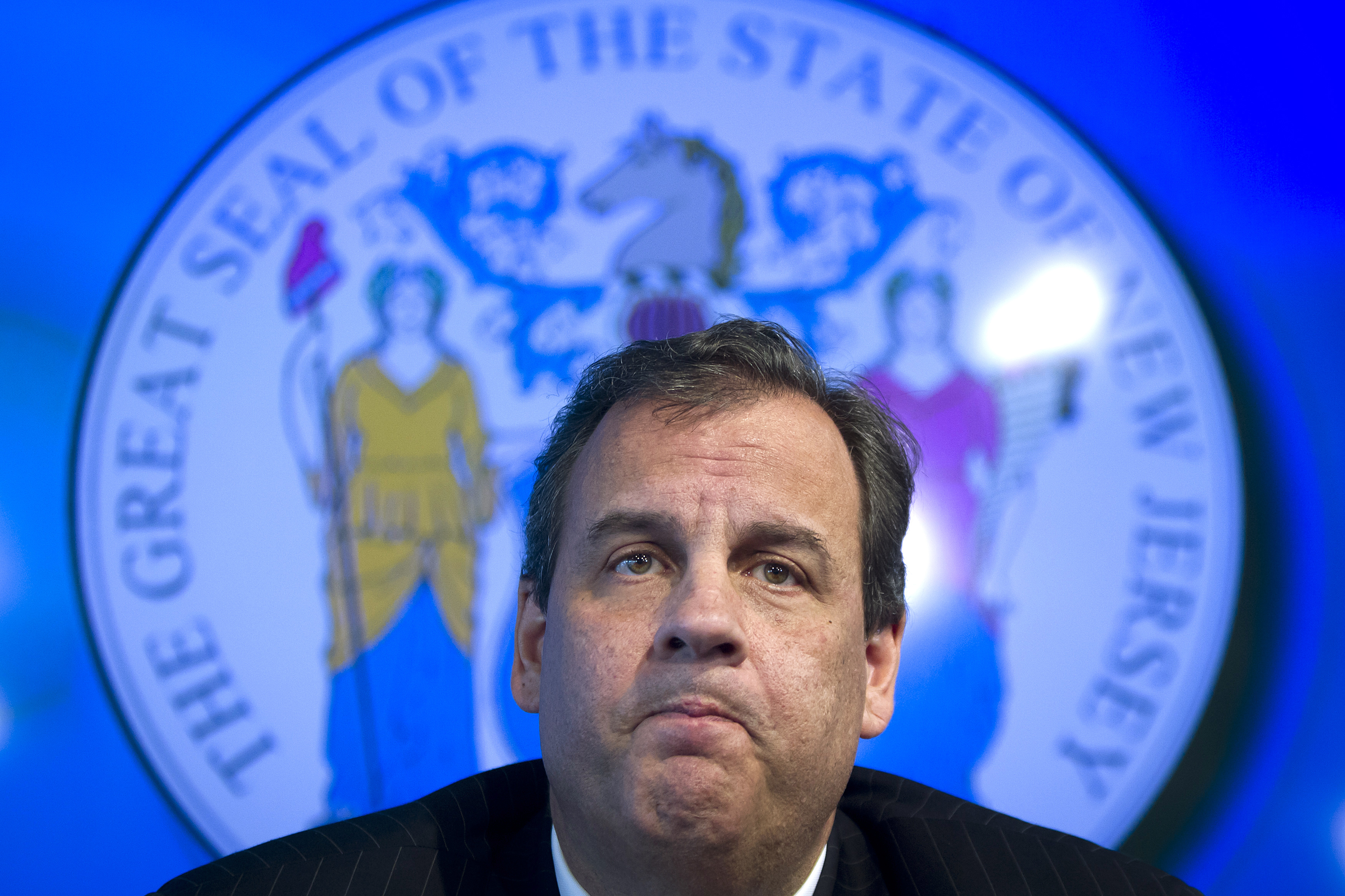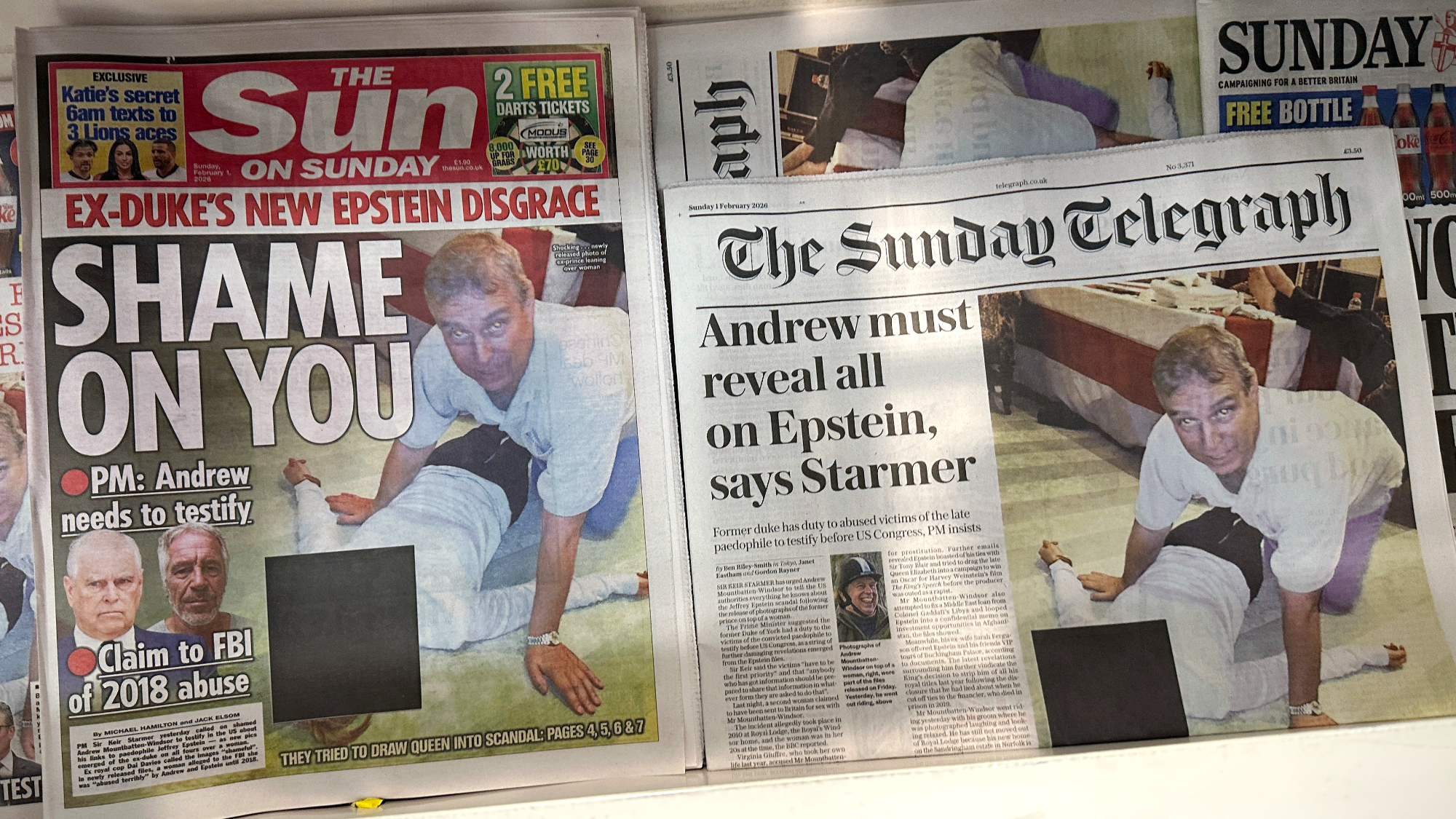Rand Paul and Chris Christie's big whoops: The GOP isn't actually anti-vax
Starting a walk back in 5... 4... 3...


How did anti-vaccination skepticism become the default, "safe" answer for likely Republican presidential candidates?
I think it's because these candidates — most prominently Sen. Rand Paul (R-Ky.) and Gov. Chris Christie (R-N.J.), — draw a link to the way their party deals with climate change. Having little reason to think about vaccinations in political terms before, they’re looking to last cycle's cyclone of denialism for help with the playbook. They shouldn't. The two issues are very, very different.
Candidates who say that humans aren't responsible for global climate change and therefore should not be held responsible for its consequences are catering to a faction who funds their campaigns. Most of these candidates do, in fact, know better.
The Week
Escape your echo chamber. Get the facts behind the news, plus analysis from multiple perspectives.

Sign up for The Week's Free Newsletters
From our morning news briefing to a weekly Good News Newsletter, get the best of The Week delivered directly to your inbox.
From our morning news briefing to a weekly Good News Newsletter, get the best of The Week delivered directly to your inbox.
Candidates who say that the science on vaccination must be balanced with the choices that families make about health care are reflecting (or betraying?) an assumption that their voting base extends their genuinely-held mistrust of the government to anti-vaccination campaigns. That voting base does not, in fact, oppose vaccinations. Most of these candidates don't know better.
While climate change denialism is widespread in America, and among Republicans in particular, vaccination skepticism is a small (but growing) movement that tracks across all political lines.
The form of the argument is the same. Don't let government tell us what to do; don't let scientists dictate policy. But the root of the argument is different, and the politics are very, very different.
The anti-vaxxers haven't spent billions to influence elections. The skin they have in the game is literally their own. They sincerely believe in what they're saying, and no amount of science, of special pleading, or of mainstream media reproach is going to get them to change their minds. Indeed, not even the outbreak of measles itself has given the anti-vax movement any pause.
A free daily email with the biggest news stories of the day – and the best features from TheWeek.com
The anti-vax movement does not align itself with partisan political divisions, although more Republicans than Democrats tend to be skeptical of government-mandated vaccinations. Most people regardless of their party or political geography think that kids should get all their vaccinations. Slightly fewer, owing to the way that the question is asked, believe that government should set these standards and enforce them. But still: a big majority.
Climate change, by contrast, has become a party flagpole issue, tied closely to perceptions of government.
Let's look at Chris Christie as an illustrative example. First, I think Christie's stronger instincts bend towards the light of science. When he was asked the question in London, he seems to have quickly weighed them against his own projection of what his base would want to hear.
After all, any time you hear any question that ties the health of children to the requirements of the state or federal government, you’re going to think through the consequences of what it means to have the feds enforce the rule. Here's what Christie said. First, he noted that he had vaccinated his own children. And then: "Parents need to have some measure of choice in things as well, so that's the balance that the government has to decide." The second part of his answer is largely a throwaway line designed to placate a sentiment that does not exist. Christie, according to the media, later clarified, with a spokesman saying that he only meant to suggest that since different states had different policies on which vaccines are required, there shouldn’t necessarily be a top-down federal government approach.
"To be clear: the governor believes vaccines are an important public health protection and with a disease like measles there is no question kids should be vaccinated," said Christie spokesman Kevin Roberts. "At the same time different states require different degrees of vaccination, which is why he was calling for balance in which ones government should mandates." [CNN]
Balance still is not a very good word for what Christie is saying. Indeed, California has looser vaccination laws than Mississippi. But outbreaks don’t begin in Mississippi like they do in California. I wager that Christie’s political consultants, having seen how the issue played out publicly in New Jersey, think that they can satisfy all sides by turning to federalism, but the facts here tend to suggest that a one-size-fits-all policy either mutually agreed upon by all states or simply mandated by the federal government would be the most practical way of ensuring that "kids should be vaccinated."
Venturing again into that part of my brain that tries to figure out what political strategists are thinking, I think the fear here is that vaccination will become more of a political fireball than it is now. That's simply because almost any question about government and health care that rises to the level of the public’s attention becomes subject to the strongly partisan terms of politics today. And Democrats want to claim the terrain that favors required inoculations — it’s one of the few, personally intrusive government mandates that’s actually popular.
Marc Ambinder is TheWeek.com's editor-at-large. He is the author, with D.B. Grady, of The Command and Deep State: Inside the Government Secrecy Industry. Marc is also a contributing editor for The Atlantic and GQ. Formerly, he served as White House correspondent for National Journal, chief political consultant for CBS News, and politics editor at The Atlantic. Marc is a 2001 graduate of Harvard. He is married to Michael Park, a corporate strategy consultant, and lives in Los Angeles.
-
 Democrats win House race, flip Texas Senate seat
Democrats win House race, flip Texas Senate seatSpeed Read Christian Menefee won the special election for an open House seat in the Houston area
-
 New Epstein files dump strains denials of elites
New Epstein files dump strains denials of elitesSpeed Read Fallout from the files has mostly occurred outside the US
-
 Will Peter Mandelson and Andrew testify to US Congress?
Will Peter Mandelson and Andrew testify to US Congress?Today's Big Question Could political pressure overcome legal obstacles and force either man to give evidence over their relationship with Jeffrey Epstein?
-
 The billionaires’ wealth tax: a catastrophe for California?
The billionaires’ wealth tax: a catastrophe for California?Talking Point Peter Thiel and Larry Page preparing to change state residency
-
 Bari Weiss’ ‘60 Minutes’ scandal is about more than one report
Bari Weiss’ ‘60 Minutes’ scandal is about more than one reportIN THE SPOTLIGHT By blocking an approved segment on a controversial prison holding US deportees in El Salvador, the editor-in-chief of CBS News has become the main story
-
 Has Zohran Mamdani shown the Democrats how to win again?
Has Zohran Mamdani shown the Democrats how to win again?Today’s Big Question New York City mayoral election touted as victory for left-wing populists but moderate centrist wins elsewhere present more complex path for Democratic Party
-
 Millions turn out for anti-Trump ‘No Kings’ rallies
Millions turn out for anti-Trump ‘No Kings’ ralliesSpeed Read An estimated 7 million people participated, 2 million more than at the first ‘No Kings’ protest in June
-
 Ghislaine Maxwell: angling for a Trump pardon
Ghislaine Maxwell: angling for a Trump pardonTalking Point Convicted sex trafficker's testimony could shed new light on president's links to Jeffrey Epstein
-
 The last words and final moments of 40 presidents
The last words and final moments of 40 presidentsThe Explainer Some are eloquent quotes worthy of the holders of the highest office in the nation, and others... aren't
-
 The JFK files: the truth at last?
The JFK files: the truth at last?In The Spotlight More than 64,000 previously classified documents relating the 1963 assassination of John F. Kennedy have been released by the Trump administration
-
 'Seriously, not literally': how should the world take Donald Trump?
'Seriously, not literally': how should the world take Donald Trump?Today's big question White House rhetoric and reality look likely to become increasingly blurred
